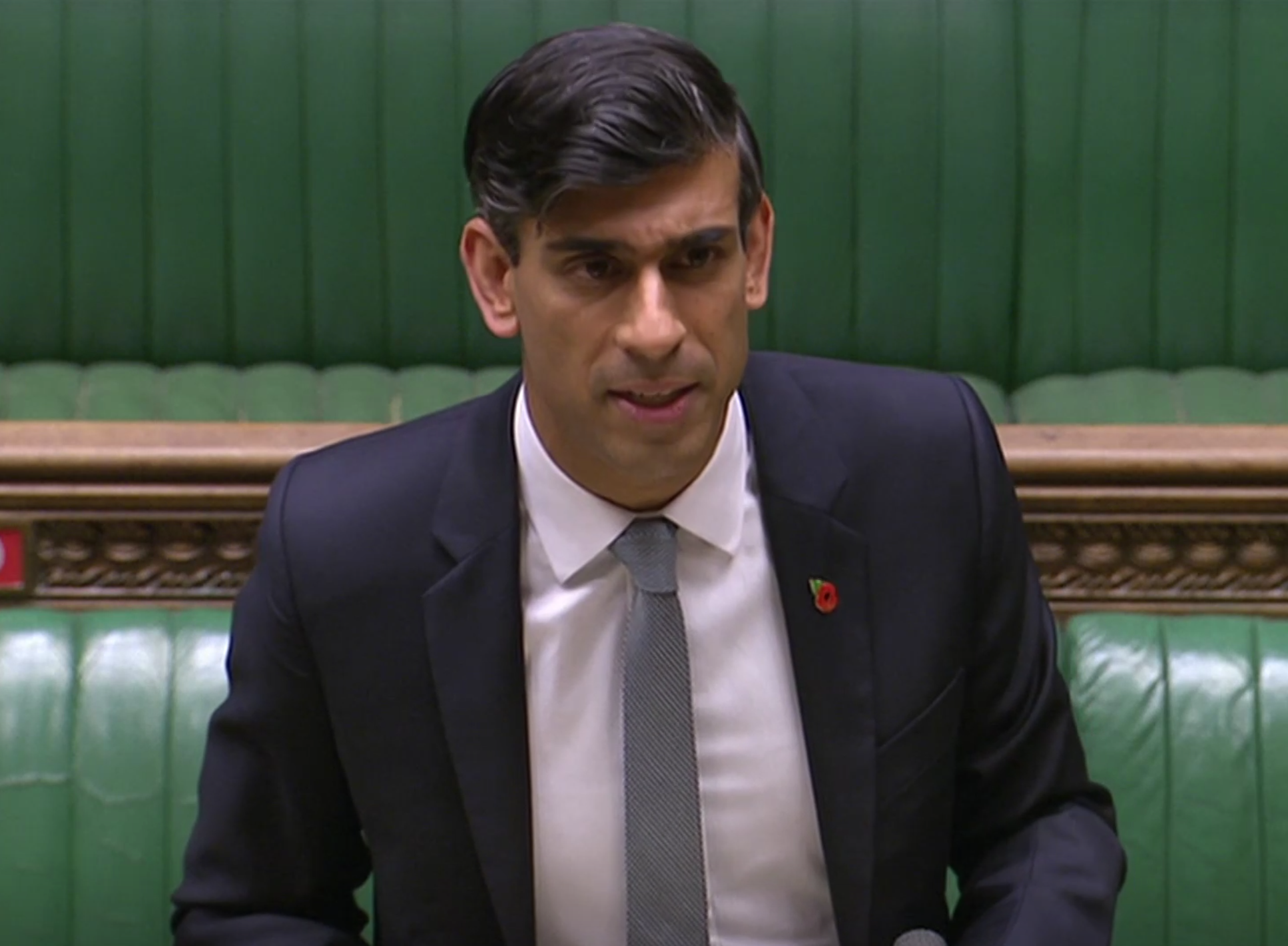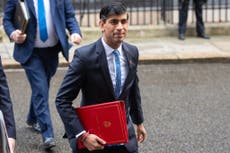There is no justification for a public sector pay freeze but will Rishi Sunak see that?
Many workers who’ve put themselves at risk during the pandemic are still earning 1.5 per cent less in real terms than a decade ago, writes James Moore


The backlash against the public sector pay freeze reportedly being considered by chancellor Rishi Sunak ahead of Wednesday’s spending review has been swift and fierce. Justifiably so.
The right wing Centre for Policy Studies, whose director Robert Colville was one of the authors of the Tories’ 2019 manifesto, sought to set out the case for the move and the think tank made quite a splash with the numbers it put out.
It stated that if pay “were to be frozen across the public sector” the government could save £3.8bn in year one, £7.7bn in year two and £11.6bn in year three. Even if NHS staff were exempt from the freeze, to account for their “hard work and sacrifices during this pandemic”, the government could still save a cumulative £15.3bn over the same period.
Colville sought to justify such a move with the claim that the public sector has being doing well in comparison to the private sector of late.
“The economic impact of the Covid-19 pandemic has been severe, but the pain has not been shared equally. Some businesses are folding under the strain, public finances have been decimated, while the public sector has escaped relatively unscathed.”
“Healthcare workers aside, it is difficult to justify generous pay rises in the public sector when private sector wages are actually falling,” he declared.
Now, that’s pretty nasty stuff because what Colville neglected to mention is that while public sector workers may have done well recently they’ve also been keeping the country running, often putting themselves at risk to do so. And that doesn’t just apply to healthcare workers.
Civil servants worked around the clock to put the furlough scheme that’s preserved millions of private sector jobs together. Job Centre Plus staff and benefits advisers have been swamped with inquiries as redundancies have spiked. Teachers and teaching assistants have kept schools open during lockdown 2.0, putting themselves at risk of exposure to the coronavirus while so doing. Then there are the local government public health teams who’ve been doing vital work at this time. The more you think about it the longer that list gets.
You can actually make a good case for giving public sector workers a bonus along the lines of the bonuses some private sector workers, who’ve also put their health at risk to serve the public during the pandemic, have received. Supermarket staff are a good example.
Just as the supermarkets have, the public sector has markedly increased its output to cope with a sharp increase in demand while parts of the private sector have been in enforced hibernation.
But Colville’s argument isn’t just morally shabby. It doesn’t make sense from a practical standpoint either.
To argue that the people responsible for that increase in output should be rewarded with a kick in the teeth creates the risk that they’ll respond by giving Mr Sunak and his colleagues a two fingered salute.
The Institute for Fiscal Studies makes the point that the public sector is disproportionately made up of highly educated professionals who tend to command higher wages in the labour market. These people also typically have options even when that market is tight (as it is now).
If the government follows the CPS’s prescription, the recruitment crises many parts of the public sector are experiencing could be exacerbated. The government’s hardline immigration policies mean that it is unlikely to be able to rely on incomers to plug any holes, as it has in the past.
The suggestion that public sector workers have “done well” and should now take one for the team also starts to fall apart when you look a little more closely. While public sector workers might have seen an uplift in wages over the last couple of years, the increases they’ve received haven’t yet come closing to making up for what they lost during the decade of Tory austerity following the financial crisis that Mr Sunak argues (not entirely persuasively) is now over.
According to the IFS, when adjusted for inflation, public sector earnings in the first quarter of 2020 were still 1.5 per cent lower in real terms than they were 10 years ago.
“Relative to pay in the private sector, public sector pay had fallen to its lowest level in decades,” it said in a recent report.
The private sector is expected to bounce back next year. If public sector pay is frozen it may provide further impetus for its highly skilled workers, the people whom the government is struggling to recruit, to quit.
Freezing the pay of an important group of consumers is also a questionable move to make with the economy in the doldrums and the private sector in need of a boost in consumption.
This was a point picked up by Julian Jessop, an economics fellow at another right of centre think tank, the Institute of Economic Affairs.
He wrote: “The millions of people affected by a public sector pay freeze may happen to work in the civil service, the police, or state education, but they are consumers too. This would undermine their confidence and spending, for very little benefit.”
Quite so.
There’s a final sting in the tail to this proposed policy, and it’s a doozy. If Mr Sunak presses ahead he will be disproportionally hurting women, who make up more than 60 per cent of the public sector’s workforce at a time when the national gender pay gap stands at more than 15 per cent.
Punishing the public sector threatens to exacerbate that problem too.
Freezing, or capping public sector pay tomorrow would be unjust, immoral and potentially sexist. It’s also economically questionable and could put public services at risk.
Does Sunak have the wherewithal to see that he’s about to step on a banana skin? We’re about to find out.



Join our commenting forum
Join thought-provoking conversations, follow other Independent readers and see their replies
Comments